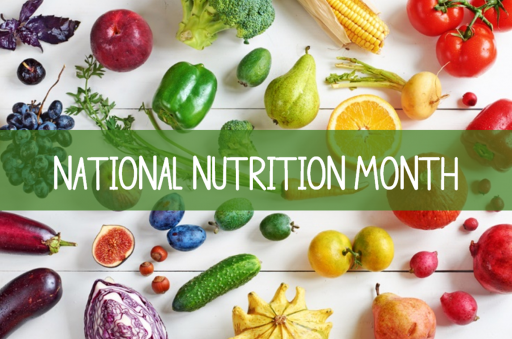Role of Nutrition in Boosting Immunity
September is globally recognized as Nutrition Month, making it the perfect time to highlight nutrition's powerful role in supporting our immune system. Now more than ever, maintaining a robust immune system is essential for protecting ourselves from infections and ensuring overall health. Many may not realize that the key to a strong immune system often lies in our food.
This blog will delve into the vital connection between nutrition and immunity and offer practical tips on enhancing your diet for better immune health.
How Does Nutrition Influence Immunity?
The immune system is our body’s natural defense mechanism against harmful pathogens like bacteria, viruses, and other microorganisms. For it to work effectively, it needs the right nutrients to function optimally. Nutrient-rich foods provide the building blocks for immune cells, support their production, and reduce inflammation.
By ensuring you get the right balance of vitamins, minerals, and other nutrients, you can give your immune system the support it needs to keep you healthy and prevent illness.
Key Nutrients to Strengthen Your Immune System
Vitamin C
Vitamin C is widely known for its immune-boosting properties. It helps stimulate the production of white blood cells, which are essential for fighting infections and keeping the immune system strong.
Sources: Citrus fruits (oranges, lemons), strawberries, bell peppers, spinach, and broccoli.
Vitamin D
Often referred to as the "sunshine vitamin," Vitamin D enhances the pathogen-fighting effects of monocytes and macrophages, the immune system’s first line of defense.
Sources: Sunlight exposure, fortified dairy products, fatty fish like salmon and mackerel, and egg yolks.
Vitamin A
It supports the production and function of white blood cells, which help fight off infections. It also maintains the integrity of mucosal barriers in the respiratory and digestive tracts, preventing pathogens from entering the body. Additionally, Vitamin A has anti-inflammatory properties that regulate immune responses.
Sources: Eggs, dairy products, carrots, sweet potatoes, spinach, fruits like mangoes, apricots etc
Vitamin B6:
It helps in the production of antibodies and the development of white blood cells, which are vital for fighting infections. Additionally, Vitamin B6 regulates inflammation, ensuring a balanced immune response.
Sources: Chicken, fish, chickpeas, bananas, spinach etc
Vitamin B9:
It supports immune function by aiding in the production of white blood cells and DNA synthesis. It helps the body fight infections and maintain overall immune health.
Sources: Spinach, broccoli, lentils, chickpeas, oranges, bananas, cereals etc.
Vitamin B12:
It supports immune function by aiding in red blood cell production and maintaining healthy nerve cells. It also helps regulate immune responses by supporting DNA formation in immune cells.
Source: Meat, fish, dairy products, etc
Zinc
Zinc plays a crucial role in immune cell development and function. It’s particularly effective in fighting off bacteria and viruses.
Sources: Meat, shellfish, seeds, nuts, and whole grains.
Antioxidants
Antioxidants protect your cells from free radical damage, which can weaken your immune system. These powerful compounds help reduce inflammation and strengthen your body’s defenses.
Sources: Berries (blueberries, strawberries), dark leafy greens, nuts, and seeds.
Probiotics
A healthy gut is essential for strong immunity, as about 70% of the immune system resides in the gut. Probiotic-rich foods help maintain gut health and regulate immune function.
Sources: Yogurt, kefir, sauerkraut, kimchi, and other fermented foods.
Practical Tips for an Immune-Boosting Diet
This Nutrition Month, focus on incorporating the following habits into your daily routine to support your immune system through the power of nutrition.
Eat a Rainbow of Fruits and Vegetables
Different colored fruits and vegetables contain a variety of vitamins, minerals, and antioxidants that can strengthen your immune system. Aim for at least 5 servings of fruits and vegetables each day.
Stay Hydrated
Proper hydration is key for every function in the body, including your immune system. Drink plenty of water throughout the day to stay hydrated and keep your body functioning optimally.
Choose Healthy Fats
Incorporating healthy fats, such as omega-3 fatty acids, into your diet can help reduce inflammation and support immune health.
Sources: Fatty fish, flaxseeds, chia seeds, and walnuts.
Limit Processed Foods
Processed foods often contain added sugars, unhealthy fats, and preservatives, which can impair your immune system. Focus on whole, unprocessed foods to give your body the nutrients it needs to thrive.
Moderate Sugar Intake
Excess sugar can suppress the immune system, making it harder to fight off infections. Opt for natural sweeteners like honey or fresh fruit to satisfy your sweet tooth more healthily.
The Importance of Good Nutrition for Long-Term Immunity
The immune system is not just a temporary defense mechanism — it works around the clock to protect you. A well-balanced diet that provides the essential nutrients your body needs is one of the best ways to maintain your immunity over the long term.
By adopting healthy eating habits, you’re not only protecting yourself from common colds and flu but also reducing your risk of chronic diseases and promoting better overall health.
Nutrition as Your First Line of Defense
As every year September is celebrated as National Nutrition Month, it's important to recognize that good health starts with good nutrition. A strong immune system begins with the right balance of vitamins, minerals, and antioxidants found in nutrient-dense foods. By making simple changes to your diet and lifestyle, you can significantly boost your immune function and improve your overall health.
At Techno India Dama Hospital, we are committed to helping our community stay healthy through personalized nutrition guidance and expert care. If you have any questions or would like assistance with creating a diet plan to support your immune system, reach out to us.
Let’s make this Nutrition Month a celebration of health and wellness, starting with the food on our plates!











.webp)
.webp)









